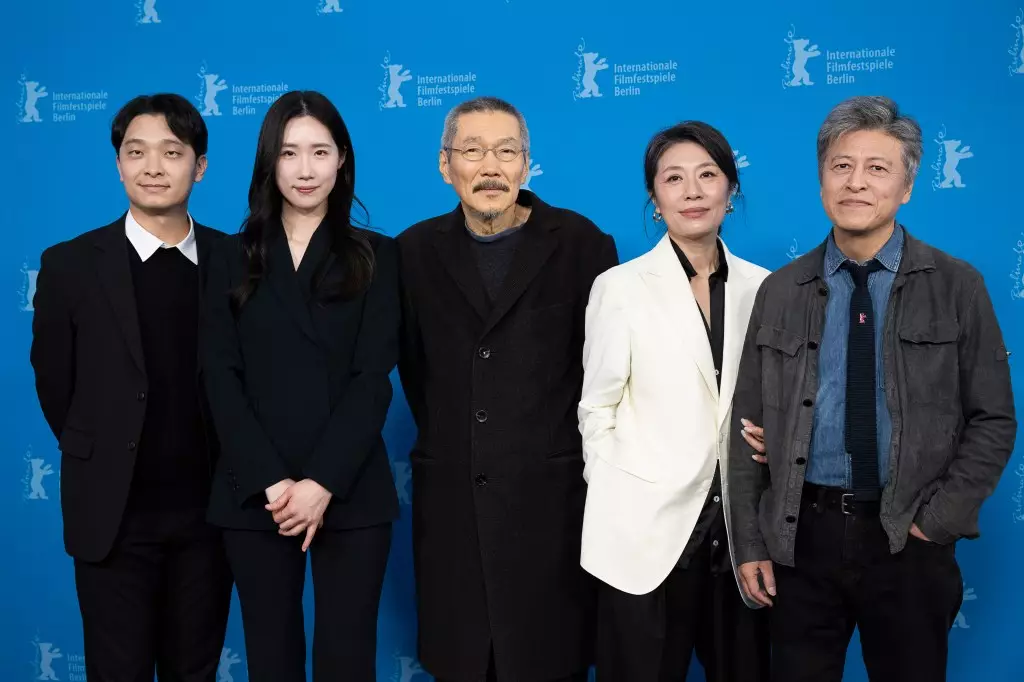The South Korean film industry has transformed dramatically over the past three decades, evolving from a niche market into a booming powerhouse on the global stage. Among its many influential figures, veteran actor Kwon Hae-hyo stands out as a significant contributor to this evolution. With over 30 years of experience in the industry, Kwon has not only witnessed this transformation but has also played an essential role in it, frequently collaborating with the acclaimed director Hong Sang-soo.
Kwon Hae-hyo’s relationship with Hong Sang-soo is particularly noteworthy, marked by an impressive collaboration across twelve films. Their artistic synergy showcases the essence of creativity that thrives in the Korean cinema landscape. Kwon’s reflections on this partnership reveal a compelling dynamic, as he describes Hong’s unique directing style. Unlike conventional filmmaking where predictability reigns, Hong’s approach involves an unpredictable and intimately layered narrative style, dominated by long takes and a contemplative tone.
This spontaneity is central to what makes working with Hong both challenging and liberating. Kwon notes that the scripts are often provided on the day of shooting, adding an element of surprise and rawness to the performance. “You arrive at the location and then you get the script,” Kwon explains, emphasizing the cast’s immersion into their roles without the anxiety typically associated with pre-prepared scripts. This method not only enhances the performance but represents a thematic connection to the characters’ authenticity, allowing actors to exist genuinely within their scenes.
In discussing his role in Hong’s latest film, “What Does That Nature Say to You,” Kwon reflects on the character he portrays and the dynamics of familial interactions presented in the narrative. The film follows a young poet’s visit to his girlfriend’s family home, leading to unexpectedly profound exchanges. Kwon’s ability to navigate these complexities highlights the depth of his talent, honed through years of experience both in drama and corporate storytelling.
Kwon acknowledges that traditional methods demand actors to prepare intensely for specific emotional articulations, yet in Hong’s films, the cast concentrates on the nuances of human experiences—vulnerability, surprise, and spontaneous joy. His description of working with Hong emphasizes a philosophy that values the authenticity of experiences over scripted perfection.
Contrary to what many might assume about improvisational performance techniques, Kwon reveals that the spontaneity is meticulously controlled within Hong’s cinematic vision. “Out of all of Hong Sang-soo’s movies, there are almost no ad-libs,” he insists. The discipline required is formidable; even long takes, which may seem to invite improvisation, are executed with striking precision. This dedication to nailing dialogue reflects a broader commitment to authenticity and truth in their storytelling.
Kwon’s journey in the industry goes beyond mere acting skill; it intertwines with his personal philosophy of life, which includes active engagement in diverse societal causes. Rather than allowing himself to be insulated within the entertainment world, Kwon advocates for involvement with non-governmental organizations (NGOs), believing that such engagements cultivate a richer understanding of life that transcends individual artistic ambition.
As he examines the remarkable rise of Korean cinema, Kwon credits the political climate and social changes over the years as catalysts for this transformation. The fall of authoritarianism, coupled with societal growth, has birthed a wealth of cinematic voices eager to reflect the realities of modern life. Kwon identifies prominent figures like Park Chan-wook, Bong Joon-ho, and of course, Hong Sang-soo, as key drivers of this newfound recognition in world cinema.
In Kwon’s perspective, the essence of Korean films lies not in escapism or fantastical narratives, but in their ability to resonate with the audience’s reality. “Movies are not about dreams or unrealistic lives; they have to be about society and reality,” he articulates passionately. This realistic portrayal is what has allowed Korean cinema to captivate global audiences, establishing a robust and relatable presence on the international film theater stage.
Ultimately, Kwon Hae-hyo’s reflections on his career epitomize both personal integrity and artistic authenticity. As he continues to navigate the complexities of the cinematic terrain, his adaptability and genuine self-expression serve to reinforce his longevity in an industry notoriously fickle. Rather than striving for distinctiveness, Kwon remains focused on authenticity—a guiding principle that has not only enriched his performances but has also contributed enriching narratives to the realm of Korean cinema. The journey of Kwon and others like him symbolizes a broader narrative of self-discovery that continues to inspire filmmakers and audiences alike.


Leave a Reply